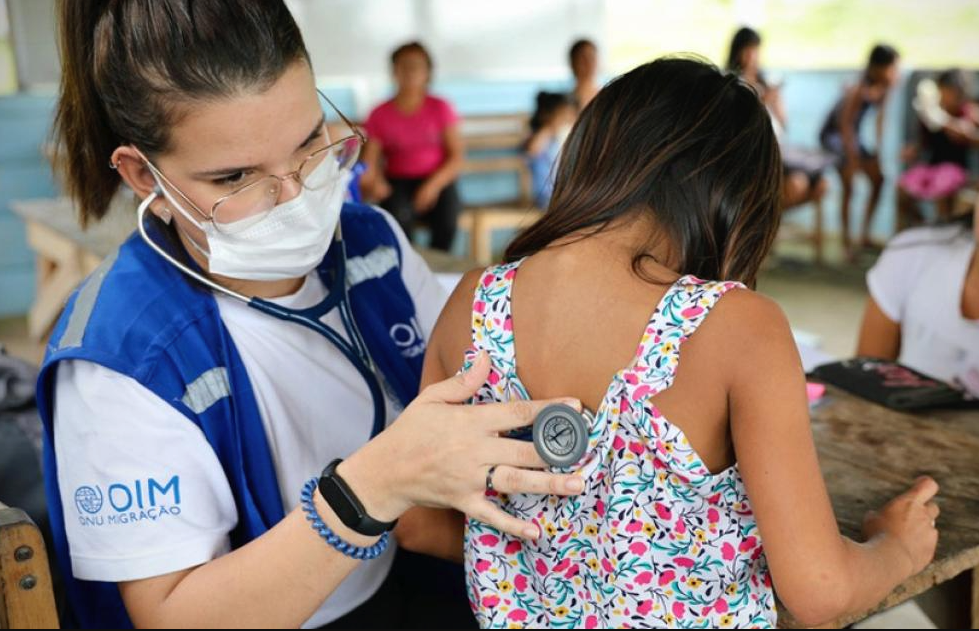The Brazilian Unified Health System (SUS) is one of the largest public health systems in the world, covering more than 80% of the population living in the country. Made universal in 1988 after a decade and a half of mobilization by the Brazilian Health Reform Movement (MRSB), it is based on the following paradigmatic pillars: the universality of access and care — regardless of documentary or migratory status — the integrality of the people served, which entails comprehensive therapeutic approaches that consider the social, cultural, economic, ethnic-racial, and other components that determine health and illness experiences, and the equity of health policies and actions, seeking to provide health care to each individual, group, or territory to the extent of their needs.
The participation of the community in the development of health policies is also a paradigmatic pillar of the SUS. The system itself arose from the deliberations of a participatory forum, the 8th National Health Conference. Thus, public health services — through the management councils of health units — and public health policies — through municipal, state, and national health councils — must be open to the participation and supervision of their users, who can help decide, together with workers and managers, on the budget, priority actions, and themes, among other issues relevant to each context.
The pandemic was and has been a catastrophe of gigantic proportions globally. However, to attribute this to the emergence of SARS-CoV-2 is to ignore the configurations of global, regional, and local power asymmetries. In Brazil, for example, the pandemic was preceded by the systematic weakening and defunding, which began in 2016, of social protection systems, with the establishment of mechanisms to contain the growth of public spending and neoliberal reforms that particularly harmed labor guarantees, health policies, social assistance, and social security.
If the Covid-19 pandemic represented, on the one hand, the culmination of the consequences of neoliberal economic austerity on social protection during the catastrophe — a glimpse of how responses to future catastrophes are being prepared — on the other, it also catalyzed the political articulation and resistance of many historically marginalized and vulnerable groups.
Mobilizations of migrants
This was the case with migrants and their mobilizations demanding specific public health policies during the pandemic in Brazil. Between 2021 and 2023, two events took place in Brazil for the popular participation of migrant populations in developing public policies. The first was the National Health and Migration Plenary in 2021, which mobilized almost 400 participants from 19 nationalities from all regions of the country. This event, the first of its kind in Brazilian history, produced 172 proposals for the care of migrants in the SUS, which were later consolidated into 37 guidelines. At the end of the Plenary, the National Front for Migrant Health (FENAMI) was also created.
In 2023, as a preparatory stage for the 17th National Health Conference (CNS), the 1st Free National Conference on the Health of Migrant Populations took place, also in an unprecedented way, with an organizing committee coordinated by the FENAMI. Held hybrid, it had 876 participants spread across 29 face-to-face centers organized in 19 cities across Brazil, or taking part online — making it the 11th largest free conference out of the 99 organized in the 17th CNS cycle. Four guidelines and 20 proposals were approved, highlighting, among other issues, the need to create a National Policy for Comprehensive Health Care for Migrant, Refugee and Stateless Populations.
This free conference also elected, in an unprecedented way, a delegation to participate in the 17th National Health Conference — the social participation forum responsible for defining the proposals and guidelines to be considered when drawing up the National Health Plan. On August 17, 2023, the National Health Council published Resolution 719, intending to publicize the guidelines and proposals approved by the 17th CNS. This resolution also included, unprecedentedly, 4 guidelines and 24 proposals mentioning migrant, refugee and stateless populations — a total of 51 mentions of these populations. Unfortunately, migrant populations were not mentioned in Resolution 715 of July 20, 2023, of this same Council, and were not included in the strategic guidelines of the National Health Plan and the 2024-2027 Multi-Year Plan.
These mobilizations had more effects. Firstly, they have made the right to health of migrant populations in Brazil a politically relevant issue, bringing an abundance of first-person accounts of experiences with the SUS, and of myriad other dimensions of life that produce an immense diversity of conceptions of health. Based on these and other mobilizations — such as the vaccination drives organized by migrant movements on the outskirts of the city of São Paulo — groups were created to think about health policies and equity actions for migrant populations in states like Goiás and municipalities like São Paulo.
A national policy
The production of a proposal for a National Policy for Comprehensive Health Care for Migrant, Refugee and Stateless Populations began in 2022. It was suspended and then resumed during the Lula administration. At the end of June 2023, the Ministry of Health published Ordinance No. 763, establishing a one-year Working Group (WG) responsible for, among other things, formulating the policy proposal.
The ordinance establishing the WG did not provide for the participation of civil society on an equal footing with the government members. Furthermore, it placed the coordination of the Group under the responsibility of the Environmental Health and Surveillance Secretariat — favoring, albeit implicitly, the association between migration and health risk, which is common in certain scientific works and in health policies that are not oriented toward guaranteeing rights.
After pressure, the government agreed to guarantee the participation of civil society. Workshops will be organized to broaden the debate on the policy. However, it is not yet certain whether the Group’s term, scheduled to end next June, will be renewed, whether the participation of civil society will be made official and whether the other activities proposed in its installation ordinance, such as the production of a document with a mapping and a national diagnosis of the health of migrant, refugee and stateless populations, are being carried out.
Thus, it is necessary to highlight the role of the mobilizations in producing momentum for the development of health policies for migrant populations in the country — which, it must be said, also benefits nationals. They represent a demand for the reconfiguration of power relations that has become more relevant in particular since the last decade, among other reasons, due to the increase in the number of racialized migrants from the global South residing temporarily or permanently in Brazil. Prohibited from demonstrating or organizing politically until 2017, they now demand, with justice and in unison, albeit in the most varied languages: “Nothing about us without us!”
*Translated by Micaela Machado Rodrigues from the original in Portuguese.













